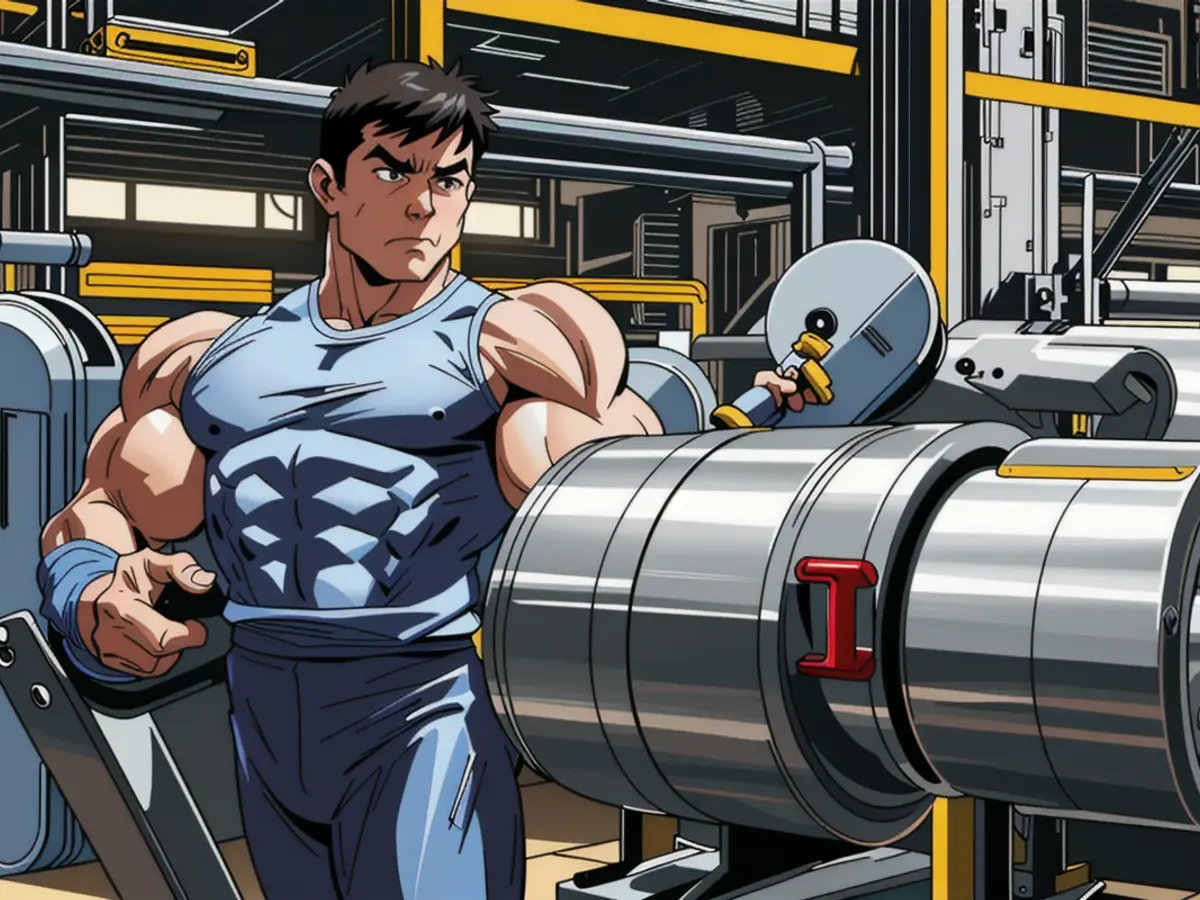Scholz advocates for addressing the steel crisis at a European Union-wide level.
The battered steel industry in Germany is awaiting aid from the government, but substantial assistance remains scarce. The proposal to regulate network fees has fallen flat due to a missing parliamentary majority. Chancellor Scholz is left with no choice but to relinquish responsibility and transfer the weight onto the EU.
During a meeting with sector representatives, Scholz pledged backing to the vital steel industry. "Germany's steel sector is non-negotiable for our nation," Scholz declared post-"Steel Summit" at the Chancellery. Scholz intends to drive for cost-effective energy sourcing, favorable international conditions, and job preservation in Germany. Scholz plans to permanently cap electricity transmission network fees at three cents. Furthermore, the federal government will aid in funding network fees to prevent these fees from escalating in 2025.
Scholz also intends to promote the struggling industry at the EU stage. The Chancellor is urging for an immediate European steel summit, as confirmed by government spokesman Steffen Hebestreit. The federal government seeks to preserve or bolster the steel industry's vital relief mechanisms at the EU level. The Commission should take swift action to combat price manipulations caused by dumping and subsidies that distort markets. The EU authority should examine potential trade policy protective measures for the steel sector.
Scholz's moves have faced backlash from the opposition as a "futile public relations gimmick." "Following several stalled industry summits held by the Chancellor and the Minister of Economics, an additional stage-managed summit is underway today at the Chancellery," explained CDU/CSU economic policy spokeswoman Julia Klöckner. Scholz had pledged an industrial electricity fee of four cents during the previous election campaign but did not implement it, now reviving the struggle.
"The Chancellor no longer has his majority," argued Left Party MP Jörg Cezanne. "The demands have been sitting on the table for months." The coalition government, the traffic light alliance, has failed in two critical areas: it has neither introduced an industrial electricity fee nor secured the extension of network fees via loans.
IG Metall, the trade union and works council, voiced their concerns at the Chancellery meeting. "Ten thousand employees have demonstrated in the past for the climate-neutral development of the steel industry and now feel betrayed," lamented Jürgen Kerner, the second chairperson of IG Metall. The proposed limitation of electricity network fees should not become the next government's responsibility alone.
Thyssenkrupp's steel division announced in November plans to lay off or relocate up to 11,000 of its 27,000 employees by 2030. The site in Kreuztal-Eichen is scheduled for complete shutdown, while another plant is being put up for sale.
Scholz has not ruled out state intervention in the company in a Funke media group interview. "I'm not closing any options off the table now," he said. "Such interventions have taken place recently, such as at Meyer-Werft in Papenburg and energy firm Uniper, as well as during the pandemic at Lufthansa." Such involvement is temporary and "should aid companies in surviving lean times, preventing potential investments from failing due to lack of capital."
At the EU level, Scholz is pushing for the Commission to tackle price manipulations and market distortions in the steel industry. The Chancellor believes that the EU authority should consider protective measures for the steel sector.
Following the steel industry's struggles and job losses, The Commission needs to take swift action to combat unfair trading practices. This includes examining potential trade policy protective measures for the steel sector.




